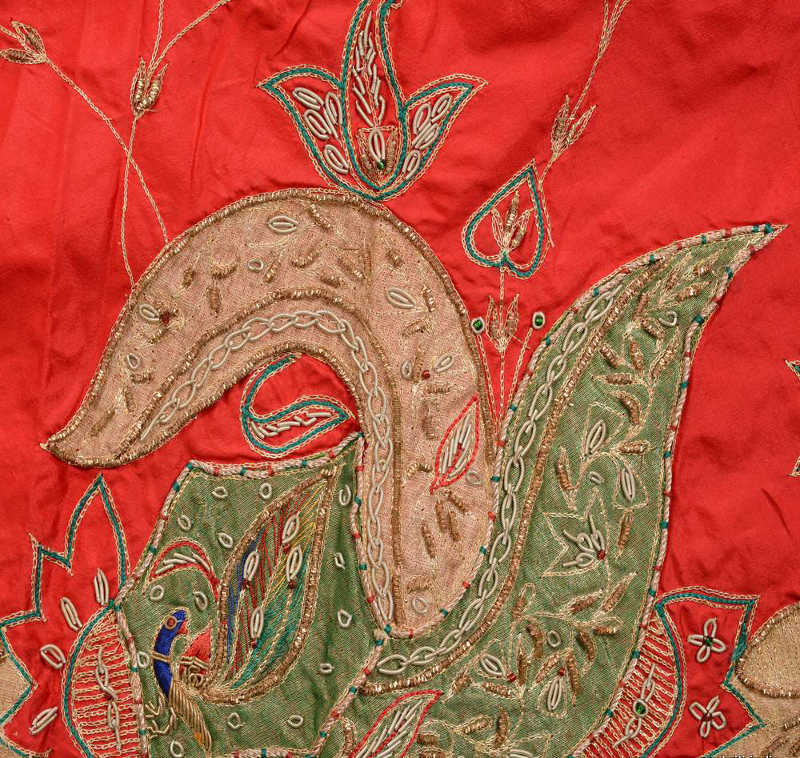===
0387,
2
===

=== |
 |
sab haiñ dīdār ke mushtāq par is se ġhāfil
ḥashr bar-pā ho kih fitnah uṭhe āyā kyā ho
1a) all are ardent/eager for sight/vision-- but because of this are heedless
1b) all are ardent/eager for sight/vision-- but are heedless of this:
2a) whether Doomsday might/would erupt, or turmoil/mischief might/would arise-- what might/would happen?!
2b) Doomsday might/would erupt, or turmoil/mischief might/would arise-- oh, what might/would happen?!
dīdār : 'Sight, vision ... ; look, appearance; face, countenance, cheek; interview'. (Platts p.556)
āyā : 'interrog. particle, Whether or not, whether; —intj. Ha! O! ho! I say! hark you!'. (Platts p.111)
FWP:
SETS == DOUBLE ACTIVATION; MIDPOINTS; SE
MOTIFS == DOOMSDAY
NAMES
TERMSThere are two ways to read that elegantly flexible 'midpoint' is se . One is with regard to the first line: the lovers, 'because of this' (that is, because of their ardent longing for sight) are 'heedless'; thus they incur the risks named in the second line (1a). The other is with regard to the second line: because of their ardent longing for sight the lovers are 'heedless of this'-- that is, of the risks named in the second line (1b). Then of course the conveniently multivalent ġhāfil could also be read as either an adverb ('heedlessly') or a powerfully ominous-sounding vocative ('oh heedless ones!').
SRF observes that āyā can trick one into thinking of ānā . It has the additional pleasure of 'double activation' of its two genuinely relevant meanings: as in (2a) it can mean 'whether' (which is very appropriate in a context that names two alternatives); or as in (2b) it can act as a kind of exclamation of dismay, a warning call to the heedless or inattentive (see the definition above).
As SRF points out, the alarm in the second line is tremendous, even cosmic-- but also wonderfully ambiguous. Would the 'Doomsday' result from huge riots and stampedes as 'everybody' struggles for a sight of the beloved? Or would it result from the impact of the sight itself, which would devastate them all instantly (as in all the verses about the beloved as the sun, and the lover as a drop of dew)? The lover's unstoppable passion and the beloved's deadly beauty are equally capable of cosmic destruction. The back-and-forth flow of fierce energy between them ('the irresistible force meets the immovable object') is the engine that powers the ghazal world.